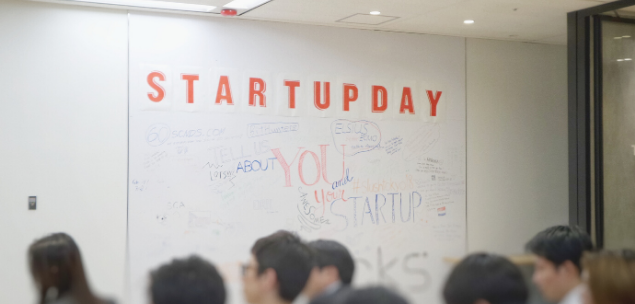Vu Tran, co-founder at Go1, talks us through why he thinks startups and digital transformation will be key in the economic recovery from COVID-19 in Australia.
It would be an understatement for me to say that COVID-19 has changed the world and indeed the way many of us live. In Australia, though tragic in terms of the lives lost to date, we have been fortunate to avoid the significantly higher rates of infection and associated mortality that other nations have endured. As we have seen in the United States and Europe however, the key common thread has been the dramatic impact on local and global economies alike.
The reality is that many good businesses may not survive, and those that do will find their operations permanently changed. From small businesses in hospitality and tourism through to multinational entities, all businesses will need to reassess how they operate moving forward given the flow-on effects of global challenges such as unemployment and disrupted supply chains.
In the startup world, many have also been forced to put operations on hold or temporarily scale back their plans just in order to survive. But as we emerge from the crisis, some of these more agile small businesses and start-ups who have adapted to change may be better placed than larger less nimble incumbents to not only survive but thrive in this new world.
Evolving in Order to Prosper
While the federal government has begun implementing its three-step plan for how COVID-19 restrictions will be lifted across Australia, there will still be a lengthy transition period as global travel remains limited and other economies are at varying stages of recovery.
Startups by nature are growth minded – it’s part of their DNA. Solving problems, spending money on growth (also known as investment), and therefore creating jobs as a result, make start-ups a prime ingredient in our country’s plans for economic recovery. They adapt, they identify opportunities for change, and grow off the back of them. This will be vital for succeeding in the new, and as-yet-unknown, world we are emerging into.
Related:
But while making considerations around change, companies no matter how large or small should also keep sight of what matters and what drives them. Investor and entrepreneur Ray Dalio underlines the importance of this in his book Principles where he talks about developing strong foundational principals to guide decisions when faced with challenges and opportunities. In his book, Dalio also notes, “evolving is life’s greatest accomplishment and its greatest reward” and “adaptation through rapid trial and error is invaluable.”
Adapting to New Technologies
COVID-19 has been described by many as a catalyst for significant change. This is best illustrated in the rapid adoption of new technologies by companies in response to the changing economic and social landscape. It also demonstrates the need for companies to not only move faster to adopt new technologies but also to learn how to make decisions at pace. If you asked an Australian G8 university before the pandemic how long it would take for their entire operation to transition to an all online learning model, many would have estimated four to five years. When the crisis came, it took them a matter of weeks. If we look at healthcare with the introduction of widespread telehealth, the population has adapted and we will now likely see telehealth becoming a key component of our country’s much envied healthcare system.
Digital transformation is therefore no longer an option but a necessity. It has already been forced upon many organisations and their staff, and this momentum should be allowed to continue. Without a “reset button” – companies will need to adjust and balance their risk aversion with the need to adopt technology to improve efficiency and ultimately deliver new ways of working.
Whether it be through addressing the needs of procurement or IT departments in organisations, the ability to move at pace and finding that right balance between risk and necessity will be a key asset to any organisation now and into the future.
Setting New Employee Expectations
The way we view work has likely changed forever. Even as a temporary measure, remote working has opened people’s eyes and minds to a different way of operating. During COVID-19 lockdowns, people have had more flexibility and spent more time with family than ever before. As a result, employers must take this into account when anticipating what the needs and demands of an employee will be post-pandemic.
Entrepreneur and author Reed Hoffman wrote about the concept of future employers hiring someone for “a job to be done” rather than simply to fulfil a role. This is an idea that may likely come to fruition off the back of COVID-19. With a large number of employees working from home, employees are likely to have been held less accountable to what they’re doing, and hopefully more accountable to what they’ve achieved. For myself personally, I can’t see every single one of my hundreds of staff on Zoom every minute of the day, but I know they’re working well, and trust them to get the job done.
The future won’t be easy, but I am optimistic as we welcome the emergence of the “new normal” and how new ways of working will evolve. Startups provide a key ingredient to accelerate our country’s economic recovery with the opportunity for big business adapt a similar growth mind-set. Technology and innovation will sit at the centre of this shift, and companies will need to adapt if they are to not only survive, but prosper in this new age.
is the co-founder and Head of Growth at GO1.com, the world’s largest onboarding, compliance and professional development platform. A global business founded in Brisbane, Australia; GO1 has offices in the United States, South Africa, Vietnam, the United Kingdom and Malaysia.
Keep up to date with our stories on LinkedIn, Twitter, Facebook and Instagram.

